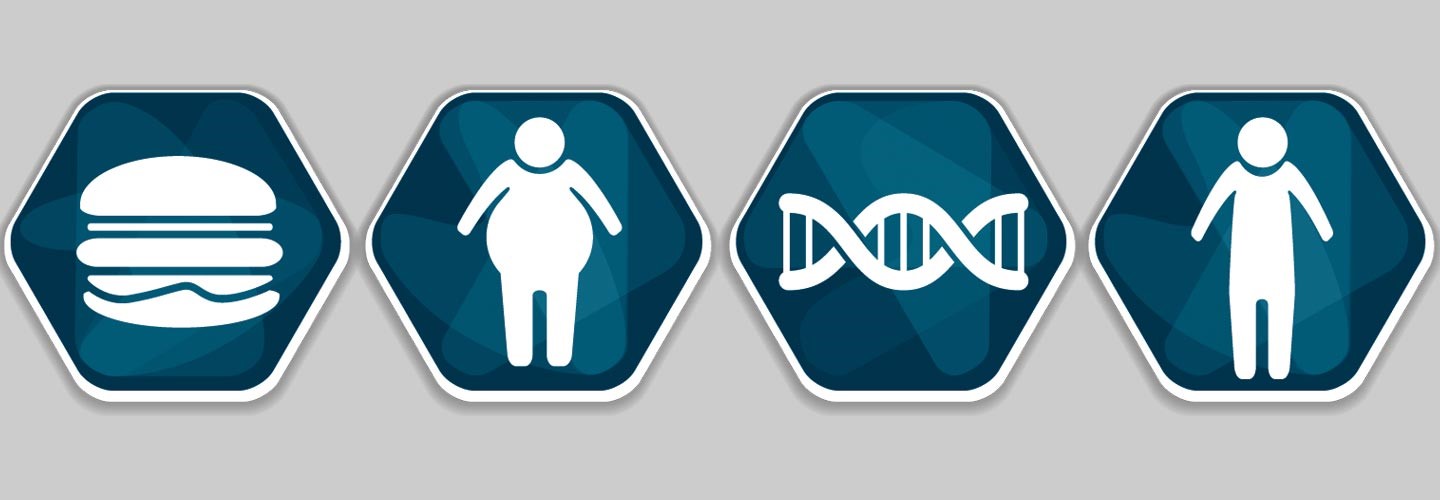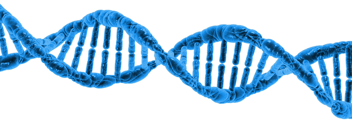Bipolar Depression: For Some, It’s a Gut Feeling How Regulating CD33, PPARG, COMT and other Genes can Lift and Stabilize Mood, Improve Cognition, Reduce Stress Response, and Cause Weight Loss
- Home
- Blog

“The anti-determinists want to say that DNA is a little side-show, but every disease that’s with us is caused by DNA. And (every disease) can be fixed by DNA.”
– George Church, “From Designing the Molecules of Life to Designing Life”
Reader, last week I told you about a patient named Jimmy*, who thought that the field of psychiatry was a total scam. Jimmy had suffered for years without knowing why or whether his suffering was just “part of life”. But when I diagnosed him with Bipolar Disorder, our subsequent work together changed his life forever. Genetic testing and targeted treatment paired with talk therapy unveiled an entirely new person—a Jimmy he never knew existed underneath his illness. As we learned from Jimmy’s story, a genetic-testing-enhanced, more precisely diagnosed and treated mental illness, can change everything. Suddenly behavioral patterns, habits, and attitudes just make sense, and patients can feel a tremendous validation that they’re not “weird”, “bad”, or “abnormal”—rather, they’re suffering from a genetically based illness that, once diagnosed, can be treated through precision medicine. Yes, indeed: a diagnosis can change things. But what happens when a diagnosis is just the tip of the iceberg—with so much more to be revealed just beneath the surface?
Today, I want to share with you a story about a patient of mine who had been living with Bipolar Depression for a decade—and yet her diagnosis did nothing to make her feel better. In fact, as the years had passed, she’d been feeling worse and worse—and had put on a significant amount of weight. Her story illustrates the complicated truth that mental illness can “inhabit” the entirety of our bodies. It can overwhelm every cell within us, and every fiber of our being. Why? Because our bodies and our minds operate not separately, but as a holistic system with complexities that must be respected and not ignored as mere “side effects”. Reader, let’s get to know a bit about Monica*: how her symptoms of Bipolar Disorder worsened, and how precision medicine through genetic testing helped her toward her full self once again.
Monica’s Story: When Bipolar Disorder is just the Tip of the Iceberg
When Monica first came to see me at age 42, she felt like a complete mess. As she listed off her symptoms, I could understand why: low energy, racing thoughts, mood swings, poor memory and concentration, difficulty sustaining a focus, easy distractibility, and insomnia were all impeding her ability to feel whole and live a normal life. Monica had a childhood history of ADHD. She was also 100 pounds overweight. This latter symptom was related to a whole host of other symptoms that any patient might consider merely “physical”, including metabolic syndrome, Celiac Disease, and alternating bouts of diarrhea and constipation. But as we’ll come to learn later on in this post, the physical can very much affect the mental and vice versa—and these symptoms shouldn’t be shrugged off as unrelated.
Now, it would’ve been one thing if Monica had never been treated for these and other symptoms. But in fact, Monica had been diagnosed with Bipolar I Disorder ten years earlier. Those who suffer Bipolar I Disorder experience more intense manic episodes than Bipolar II patients – accordingly, she’d been previously prescribed Lithium, Lexapro, Clonazepam, Lamictal, Seroquel, and Abilify. And there were past trials of Vyvanse and Depakote, along with a number of other medications that she couldn’t recall. A decade of treatments had not made any meaningful difference. How was that possible?
Monica was a smart woman—brilliant, in fact. She had achieved a Ph.D. in Physics, and had once worked at a prominent laboratory in a largely male-dominated field, and had distinguished herself in the field of quantum mechanics. And yet in those ten years, she still couldn’t answer that crucial question: Why am I not getting better? Her frustration, pain, and despair came pouring out of her as she sobbed during our first session: “Dr. Bruce, I have two boys to take care of, and a loving husband, and I just don’t know what to do anymore to feel better. I love my family so much, and feel I am really letting them down. Despite having a Ph.D., I just feel so stupid, like my mind no longer works at all. Is there any hope for me?”
My heart went out to her, as she was so sincere, genuine and appealing as a person; and she was in so much emotional pain. There was much to admire—and I wanted to explain to her on her own terms that this time her treatment would be different. I said to her, “Monica, your pain is palpable, and I will do everything within my power to help you feel better. We will begin with genotyping you, and as a physicist you can appreciate that genotyping can help us determine the underlying ‘biological forces and mechanisms’ that are contributing to your distress, and how we can address and remedy each of them. As you know, quantum biology is an emerging field based in the quantum world that you researched. While you think at the atomic and subatomic level, here we will look at the underlying molecular biology driven by your personal genome, and find ways to modulate and modify the expression of your DNA. How does that sound?”
She stopped crying, looked a bit hopeful, and I added one more comment, “Monica, a journey of a thousand miles begins with a single step. Helping you achieve a full recovery may take one to two years of patient, persistent working together. Can you be that patient?” She smiled and said, “Dr. Bruce, it took me 6 years to earn my Ph.D., I am a hard worker, I’m in!” And so we embarked on what turned out to be a remarkable journey in helping Monica heal.
Trust Your Gut: Tweaking the “Bipolar” 5HT2C, MTHFR, COMT, CACNA1C, and CYP2C19 Gene Variants to Lose Weight and Feel Better
First, we performed Genomind’s Genecept Assay, which revealed variants in 5HT2C C/C, MTHFR A1298C C/C, COMT Val/Val, CACNA1C and CYP2C19 (slow). Her severe weight gain could be attributed to the Seroquel, Abilify, and Lithium, so we gradually tapered her off these medications and substituted Vraylar (much less blockade of 5HT2C than Seroquel and Abilify), and Memantine (blocks the calcium channel without the weight gain associated with Lithium), and added l-methylfolate 15 mg daily. This process took about 6 months, and she began to feel and function better. We also began to increase the dose of her Lamictal as it is a calcium channel blocker and also lifts and stabilizes mood. We tapered the Clonazepam as it was causing fatigue. We added Wellbutrin to address her COMT variant and her focus and distractibility began to improve. She began to lose weight and was feeling more optimistic.
Never Settle for Less than 100 Percent Recovery: Becoming Whole Through Lifestyle Changes for the CD33, FTO, CLOCK, and other Genes
One day, Monica said during her visit, “Dr. Bruce I am about 75% better, but I am determined to achieve a full recovery! What’s next?” I was thrilled that we’d reached the first stage of her recovery, and looked forward to the next stage, where I can try to take the patient from “good” to “better” to (hopefully) “great”. As it had just become commercially available, we performed Genomind’s Mindful DNA Assay and a number of additional genetic variants were uncovered, which we began to address in a stepwise and systematic way over the next 10 months (recall that “journey of a thousand miles.”). We added a Mediterranean Diet, Vitamin D and Melatonin to modulate her CD33 variant to help with cognition and reduce glial cell inflammatory signaling; and the Mediterranean Diet also helps with weight loss and reducing the effects of metabolic syndrome resulting from her FTO, CLOCK and PPARG gene variants. N-Acetylcysteine was added to modulate CHRNA5/3 and FKBP5 genes to reduce her HPA stress response, and she began a regular exercise program to address MIR-181. Finally, she joined a local book club to develop some friendships, enhancing her social support to address her OXTR variant.
Now, as you re-read these last two sections, I want you to pay attention to how many times “weight loss” was mentioned. When it comes to mental illness, losing weight has nothing to do with vanity or “dieting” to increase positive self-image. Rather, losing weight can act as a major catalyst in treatment. I want to pause here to underscore this point: When it comes to Bipolar Disorder, weight gain should not be considered just a side effect to the medications that are meant to make symptoms better. In fact, weight gain can make those suffering from Bipolar feel significantly worse than before. As I said before and will repeat time and again: the mind-body connection is real, and must be respected when it comes to our mental health. Helping Monica shed over 100 pounds in total had a crucial impact on her overall treatment! Not only did it improve her self-esteem, it also dramatically reduced the inflammation in her body that wreaks havoc on brain cell function, and predisposes to higher rates of cancer, heart disease, stroke and Alzheimer’s Disease.
Healing from Bipolar Disorder… and So Much More
Flash forward 18 months from our first visit, and we had a “brand new” Monica. What a remarkable journey she and I had completed to bring her to wellness, to the point where she entered the session smiling and happy – a feeling she hadn’t experienced for many years!
A complex condition like Monica’s deserves a thoughtful, sophisticated approach, and medical decisions based upon population-based studies are just not good enough. A Personalized Medicine Approach is based in identifying one’s personal genome, and developing multiple interventions, each of which addresses one of the myriad pathways that perpetuate the individual and family suffering caused by that condition.
One day, in the not-to-distant future, perhaps with “DSM 8 or 10,” the diagnosis and treatment of mental illness will be entirely based on one’s personal genome. Until that day, let’s explore this exciting genomics frontier together, and transform that frontier into a thriving town, filled with vibrant, productive cells, systems, and citizens.
.png?width=144&height=144&name=Untitled%20design%20(34).png)



